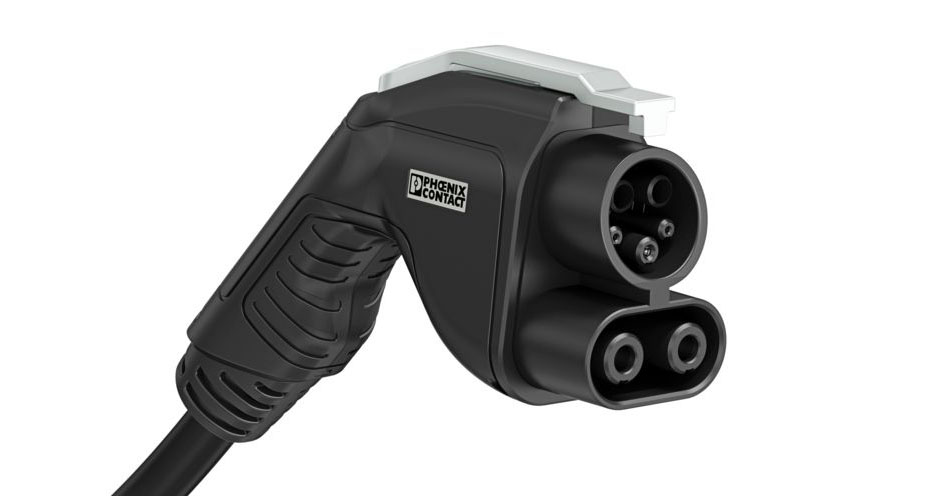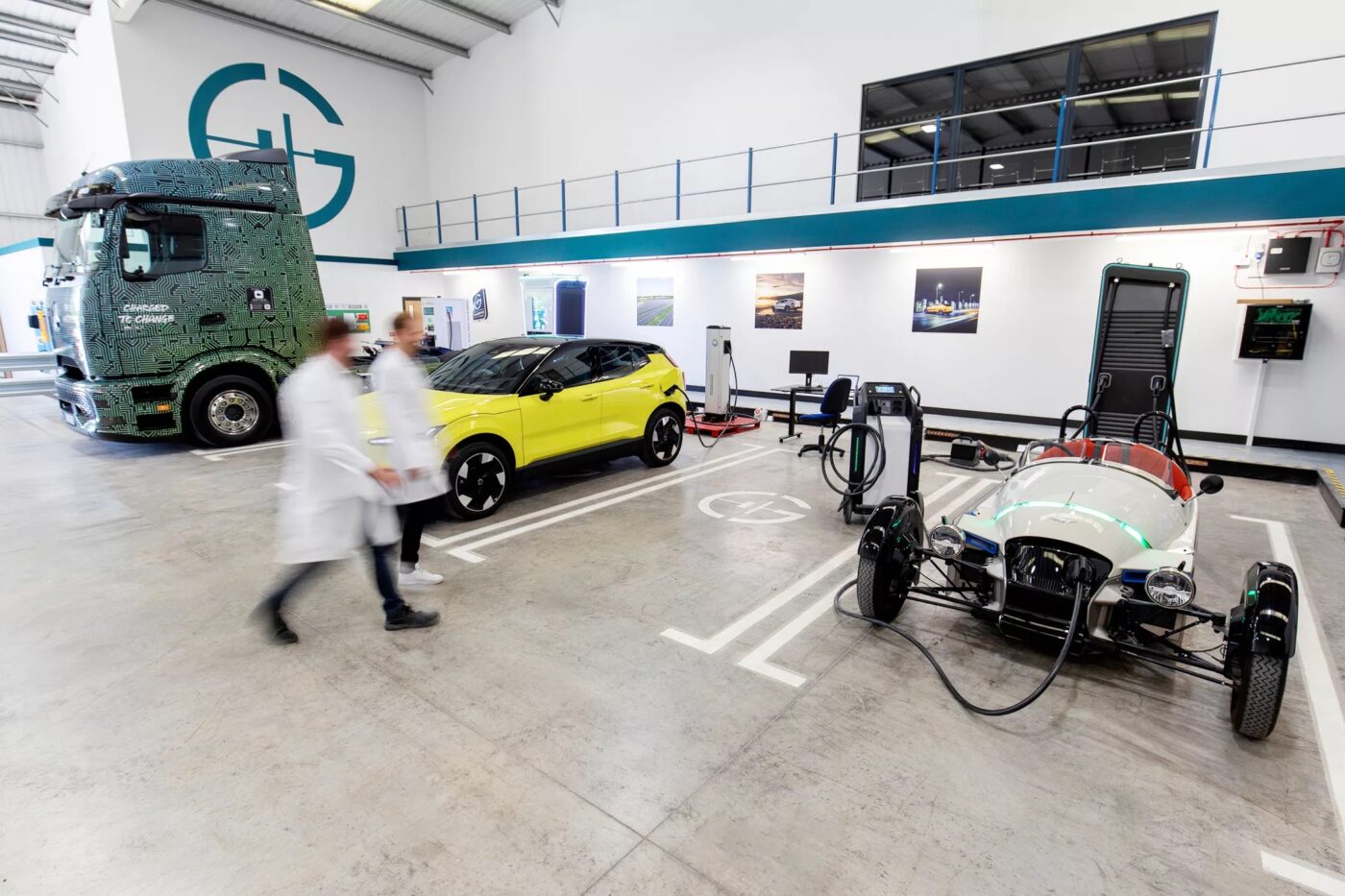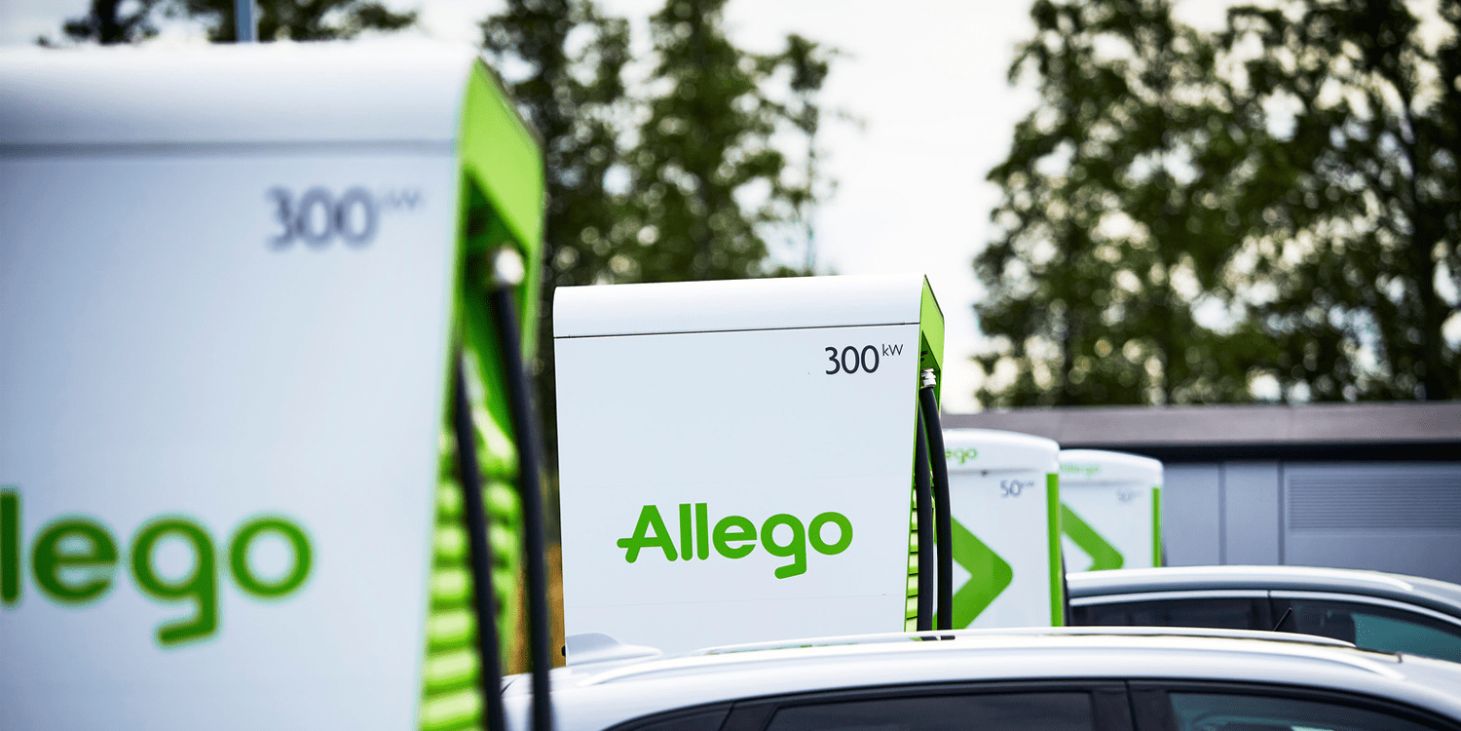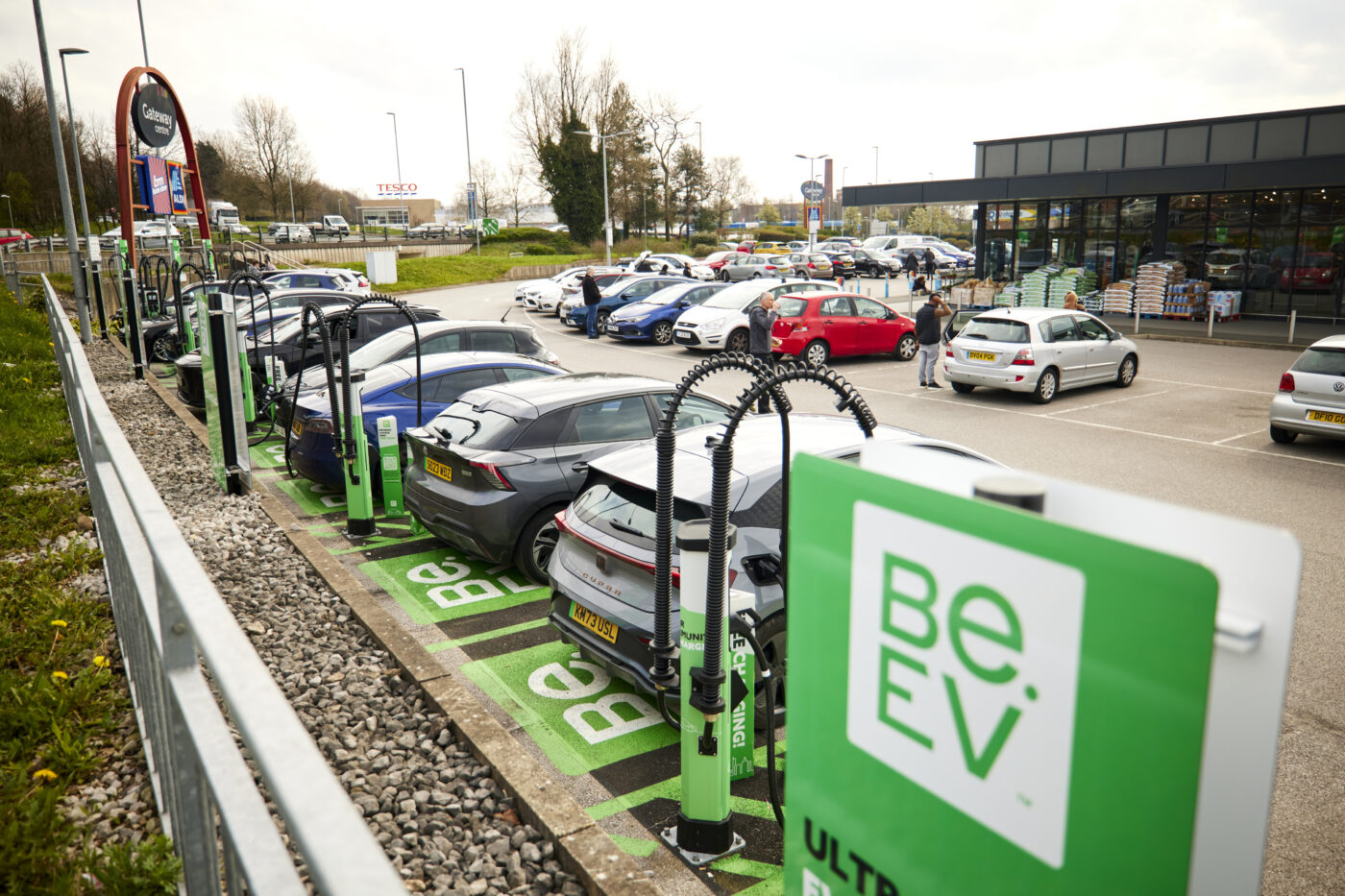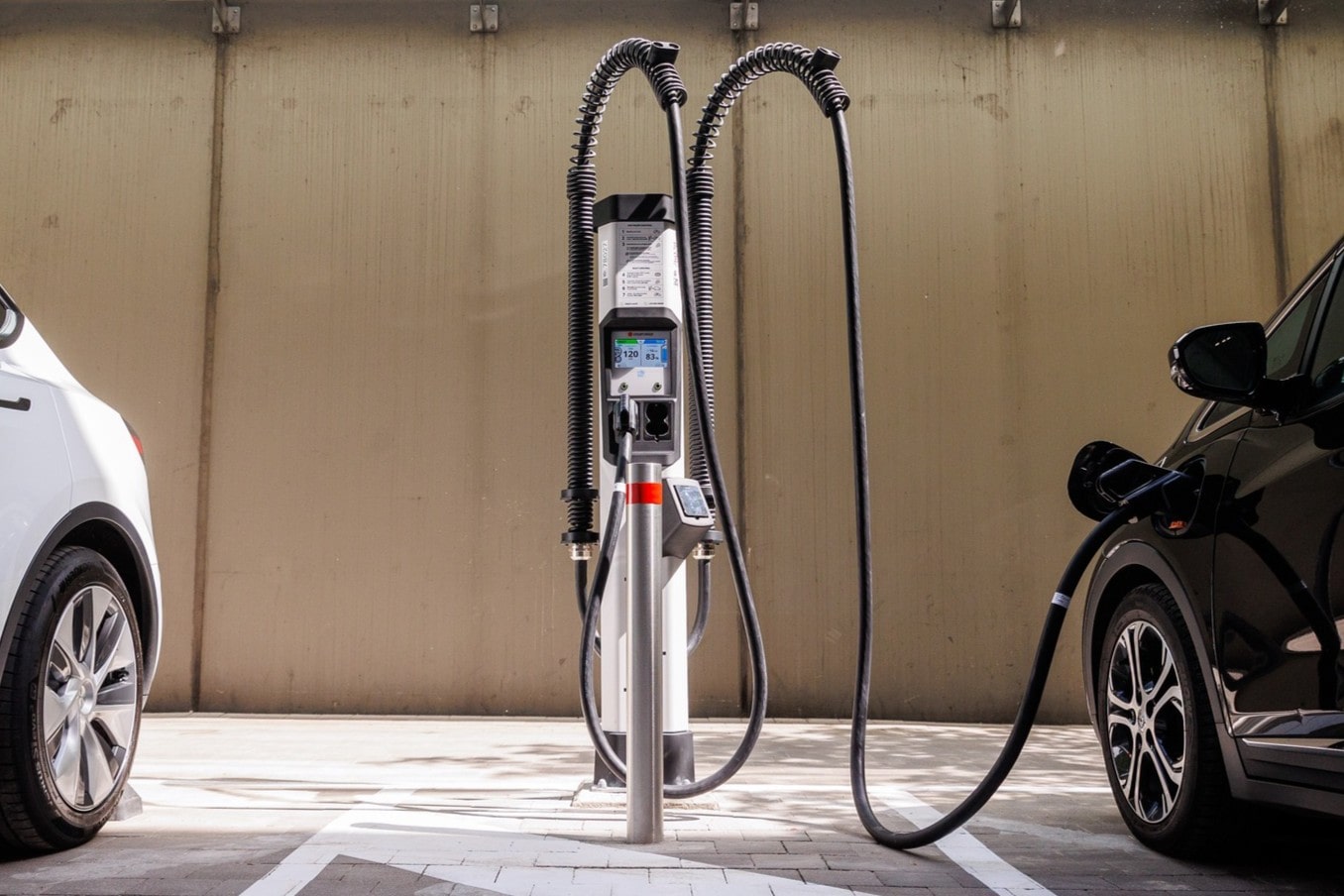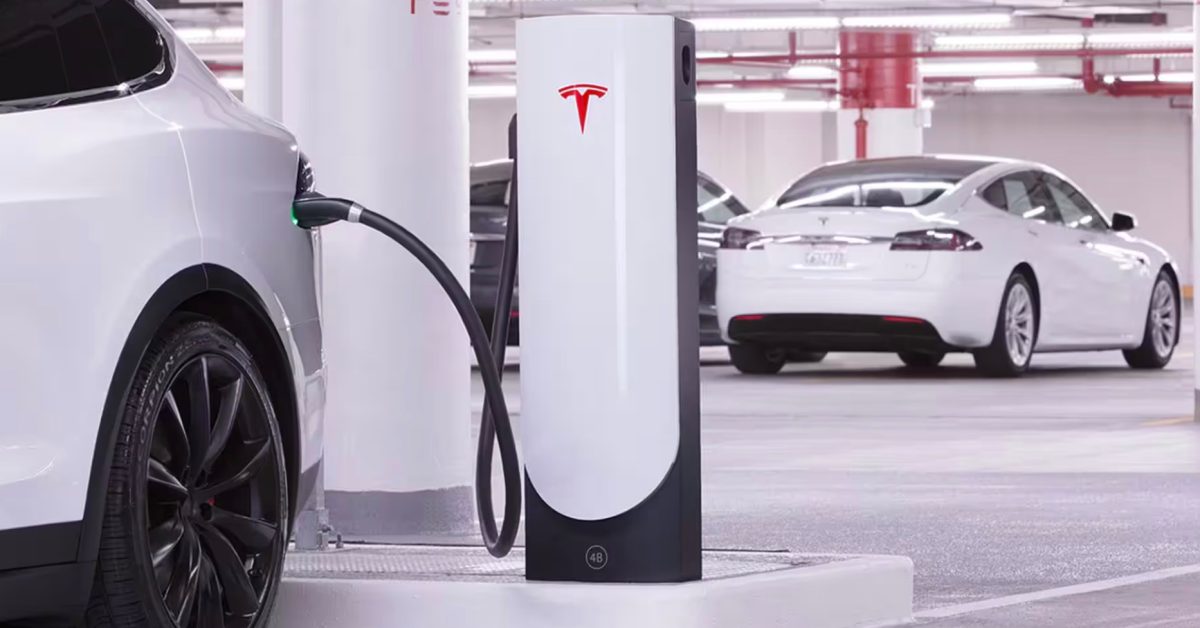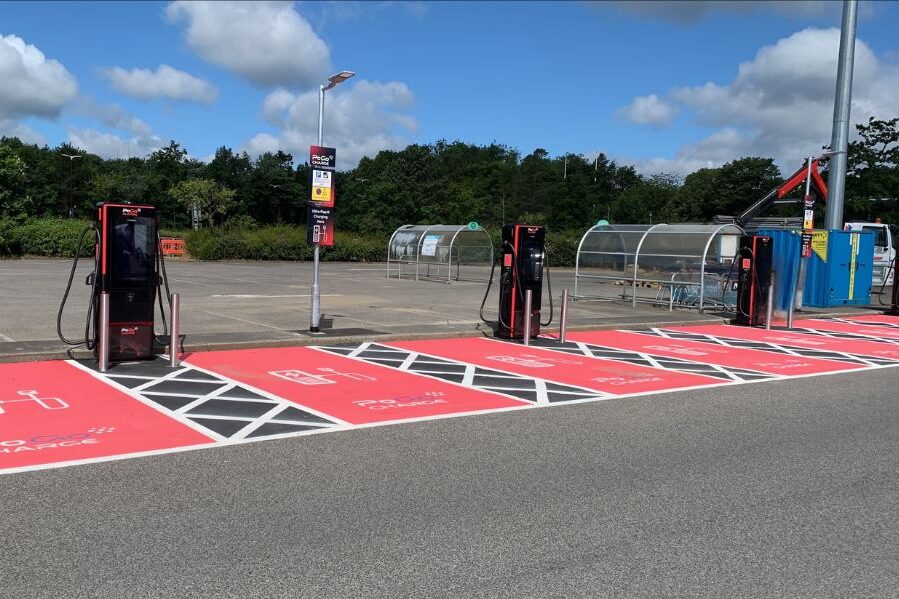German cable specialist Phoenix Contact has introduced a new Type 1 charging cable for the North American market as part of its “Charx connect” series. The new cable supports power up to 125 kW and includes two new options for the North American Charging Standard (NACS).
Phoenix Contact states that the 125 kW cable is designed for smaller DC charging stations and wall boxes, noting, “With their ergonomic design and compact dimensions, they are consistently designed for fleet solutions and applications in the public-commercial sector.”
The cable features an integrated temperature sensor that detects overheating at the power contacts, automatically interrupting the charging process to protect both the user and the station. Additionally, the cable’s sealing concept ensures “comfortable and safe outdoor use,” while its increased flexibility enhances handling, particularly in cold weather.
Since Tesla’s release of the NACS plug, which has been certified as the North American automotive standard SAE J3400, the system has become a market standard in North America. As a result, many manufacturers are adopting NACS for future electric vehicles, and charging infrastructure providers are prioritizing NACS for new installations. This shift may reduce the prevalence of the previous DC standard, CCS Type 1, used by the new Phoenix Contact cable.
In addition to the new DC cables, Phoenix Contact plans to offer SAE-compliant and UL-certified NACS cables for AC charging stations by the end of the year. These cables will support AC currents of 50 and 80 amps and come with options for customisation. Features include finger contact protection to meet IP2XB standards and integrated temperature sensors to ensure safety and reliability.
Phoenix Contact highlights that “Fully moulded plastic caps on the protruding pins of the power contacts ensure that the contact protection is permanently in place,” which helps prevent electrical accidents and enhances the reliability of NACS charging stations.

